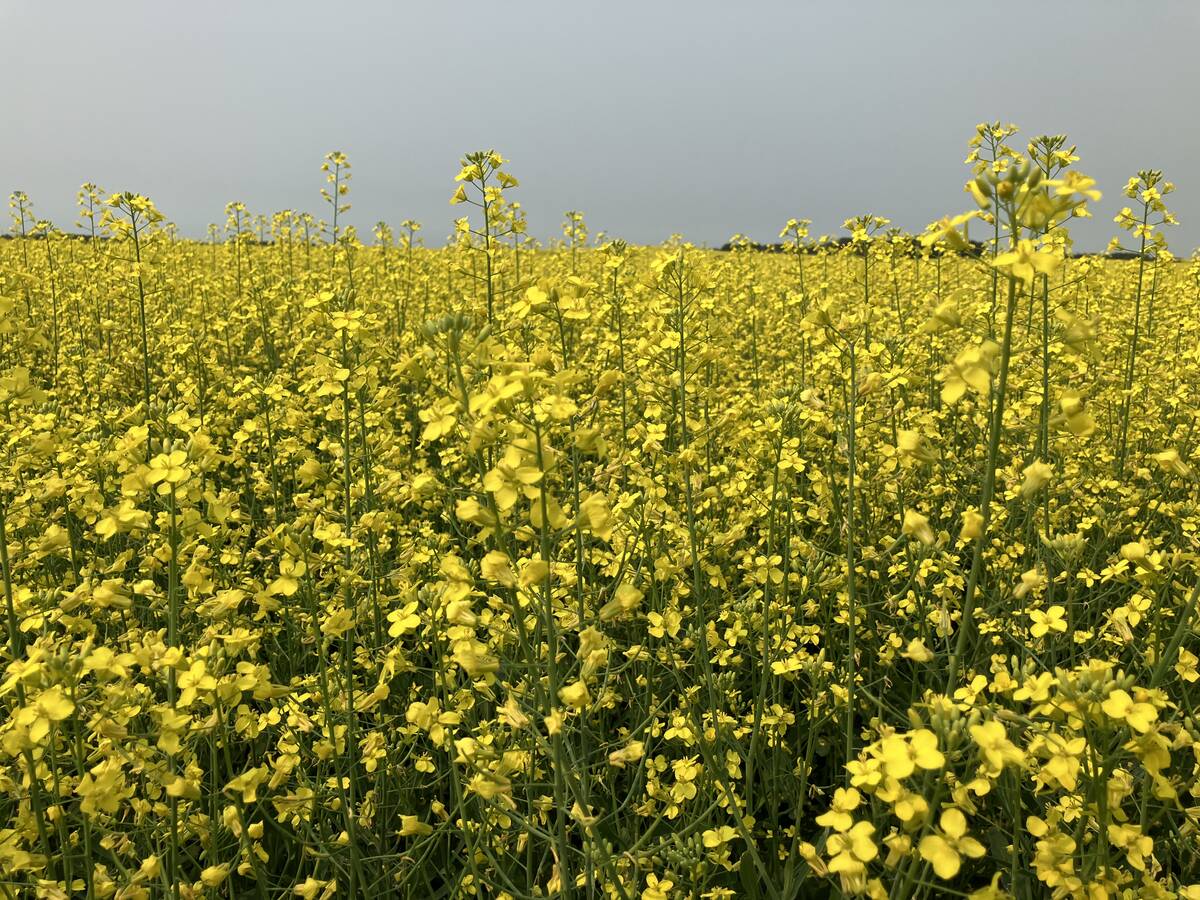Western Producer reporter Ed White visited Brazil to explore agricultural development and opportunities for Canadians brought about by Brazil’s rise to prominence as an agricultural powerhouse.
ITAIPULANDIA, Brazil – Farm manager Domingos Trevisan shakes his head in disgust when he thinks about how much more profitable his farm could be with genetically modified seeds.
“Our governor is very stupid that he doesn’t let us grow transgenic crops,” said Trevisan, who manages a 5,000 acre crop and beef farm here.
He believes Roundup Ready soybeans, which are grown on large acreages in Argentina, would cut his chemical costs by half, and make in-crop weed management easier.
Read Also

Canola used in only quarter of Canadian biofuel
Less than one-quarter of the biodiesel and renewable diesel used in Canada in 2024 was made from canola oil feedstock
He isn’t happy about Monsanto’s intention to charge farmers for using its transgenic soybeans, but he thinks the gains will outweigh the licensing costs.
Last year, this state’s governor caused an uproar and a region-wide traffic jam when he banned all trucks carrying transgenic soybeans from passing through his state, and sent out enforcement agents to check truck loads. That clampdown is no longer on, and most Brazilians seem to accept that it is impossible to keep GM soybeans out of the country, legal or not.
Millions of acres of southern Brazilian cropland have been seeded to brown-bagged Roundup Ready seed this year, say researchers.
“We have a lot. They just bring it in from Argentina,” said Ezequiel R. do Valle, a scientist with the Brazilian government research centre EMBRAPA in Campo Grande.
He estimates 70 percent of the present soybean crop in Brazil’s southern states is illegally grown Roundup Ready canola.
Ivo Marcos Carraro, the executive director of a farmers’ co-operative research centre, said he believes 90 percent of the soybeans grown in the southern state of Rio Grande do Sul are Roundup Ready.
Overall, he believes about one-tenth to one-quarter of Brazil’s soybean crop is illegally imported Roundup Ready seed.
Brazil’s government is debating whether to approve what farmers are already doing: growing massive acreages of Roundup Ready transgenic soybeans.
Carraro, whose centre has developed four varieties of Roundup Ready soybeans in partnership with Monsanto, said he believes transgenic crops will be approved by next August or September, when the next summer crop will be planted.
Many Brazilian farmers in Mato Gross do Sul and Mato Grosso deny Roundup Ready soybeans are grown in their areas, but do Valle said the bootleg beans have made their way across the country.
As long as they offer farmers more money for the same amount of soybeans harvested, farmers will want to grow them, and more will be willing to risk breaking the rules to get them.
“For farmers it is a big problem, because they want the GMOs,” said do Valle.
Some farmers in Mato Grosso state say that Roundup Ready soybeans yield more poorly and sell for less, so there is no reason to grow them.
At the Bunge plant in Cuiaba, the capital of Mato Grosso, trucks are randomly tested for GM soybeans and, if found, the soybeans are sent to a lower-value market and the farmer is penalized.
Last year two trucks were caught dumping GM soybeans at the Bunge plant, and one shipment has been found to be GM-positive this year.
But do Valle said many buyers and markets aren’t fussy about whether the soybeans they buy are GM.
“China doesn’t care,” said do Valle.
Carraro said the farmers in the hundreds of co-operatives that support his centre want GM soybeans to be approved.
“Everybody’s ready to start,” he said.
With his centre ready to hand over its foundation seed of four Roundup Ready varieties to seed multipliers, he thinks his agency could get a jump on the rest of the industry.
“We are the pioneer. We have the varieties. We have the foundation seed. We hope it is good,” said Carraro.
But he took advantage of the opportunity to quiz a group of American farmers about their experience with Roundup Ready crops, asking detailed questions about how they pay Monsanto’s fees and whether the northern hemisphere farmers have benefited from the new crop technology.
He seemed relieved when the American farmers said that Roundup Ready technology cut their chemical costs by about half and made farming much simpler.
“We are ready to start,” he said.

















